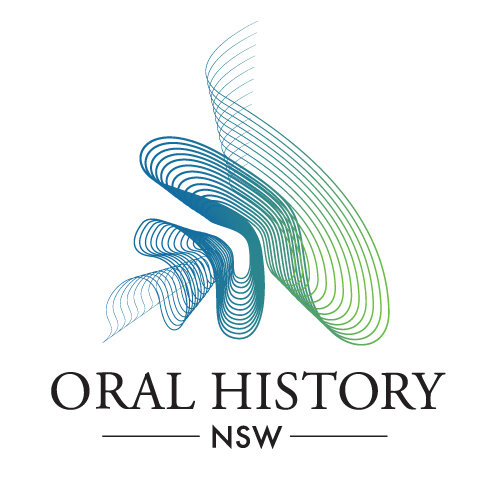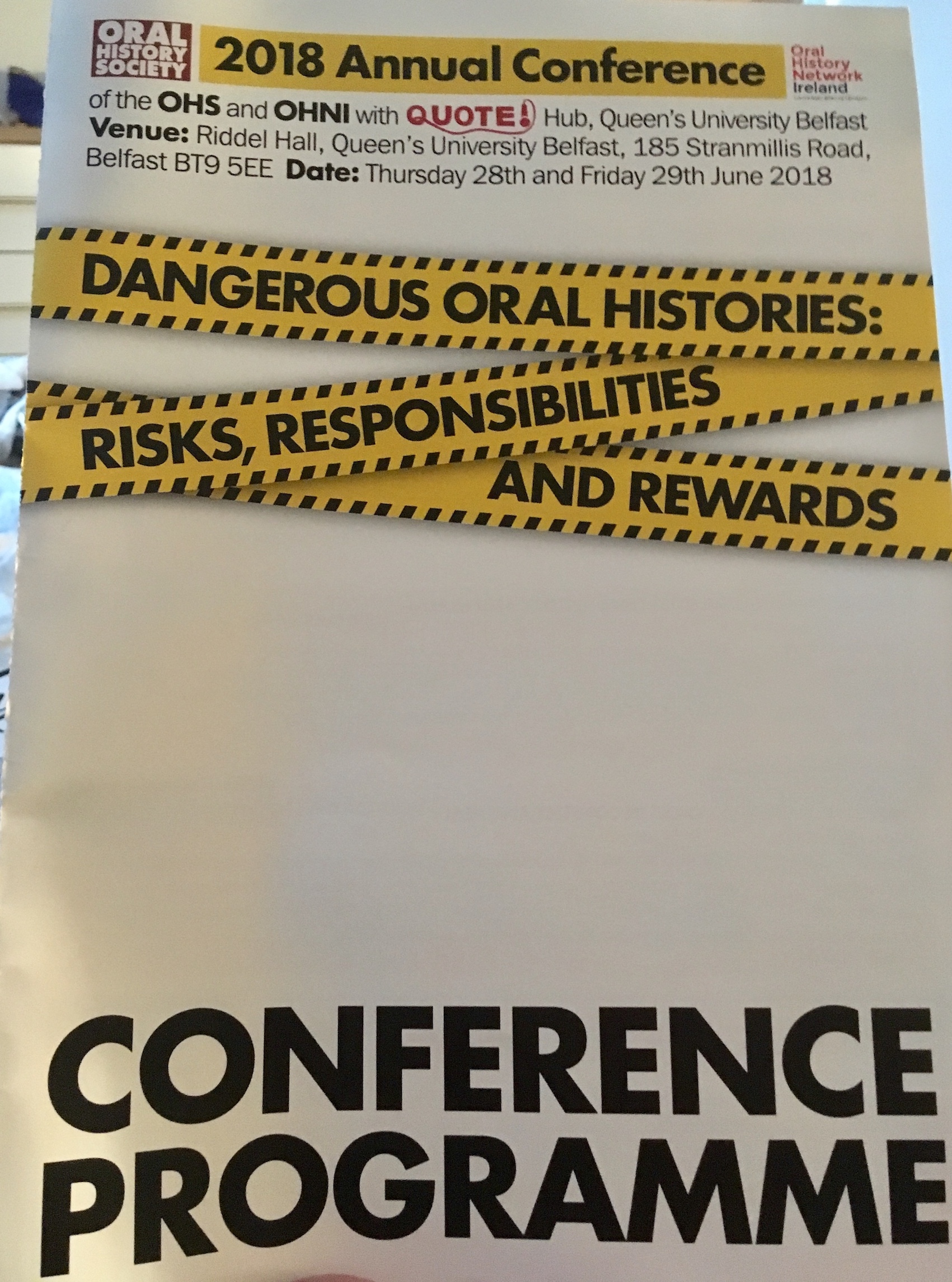Ruth Melville was the recipient of Oral History NSW's grant, which enabled her to attend the Oral History Society and Network Ireland Annual Conference in Belfast in June 2018.
She shares with us her experience of attending and presenting at the conference:
Preserving memory is a stubborn act. So said Rama Lakshmi, journalist for ThePrint, India, in her plenary address at the 2018 Annual Conference of the Northern Ireland Oral History Society and Oral History Network. Rama was speaking about the Bhopal Museum, a site dedicated to preserving the memory of thousands of people who died and the estimated half million others exposed to toxic gas from the Union Carbide gas leak in 1984. Why must we remember Bhopal? Because, Rama said, the cost of not remembering is enormous.
The two day conference in June was held at Queen’s University, Belfast and took as its theme Dangerous Oral Histories: Risks, Rewards and Responsibilities.
I was fortunate to be the recipient of an Oral History NSW grant which enabled me to travel to Belfast and present a paper about my work as a writer with the Australian Royal Commission into Institutional Responses to Child Sexual Abuse. In my concurrent session Tamara Kennelly described her experience working with students involved in the Virginia Tech shooting tragedy. And Trisha Logan reflected on oral histories of the Indian residential school system in Canada.
In several sessions throughout the conference the theme arose of oral history abutting other interests, including those of government and other institutions. Rama worked with others to prevent ‘the official hijacking’ of Bhopal memories by those keen to present an image of India’s positive economic and social growth. This survivors’ museum is seen by some as inconvenient to the public perception the government wishes to convey.
Many delegates throughout the conference returned to the question of ownership of interview and story in oral history. Just because we can – investigate, interview, publish – should we? Issues of consent, the right of interviewees to amend, retract, redact, and withdraw their consent at any time presented practical and ideological challenges for many projects.
The Northern Ireland Prisoners Memory Archive (PMA) was one such. Its archive dates to 2006 when recordings were made with people who had a connection with Armagh Gaol and the Maze and Long Kesh Prison during the Troubles. Prison staff, prisoners, educators, chaplains and visitors took part in audio and video interviews. The PMA shares ownership of the recordings with participants who have the power of veto over material. This has led to the withdrawal of significant material over the years and highlights how issues of preservation, access and engagement can change over time. The PMA’s stated commitment is to an ethical protocol intended to establish trust in a society emerging from violence where political and personal sensitivities remain tender.
Australians were well-represented at the conference and apart from engaging in the many sessions and social activities could be seen assiduously avoiding the sun while those from cooler climes happily baked.
To end with the beginning. For those undertaking oral history interviews, the importance of knowing where the story will eventually be stored can guide the way to a project’s starting point and its shape. While it isn’t possible to predict the wide scope of future technologies and the ways in which people’s words offered in one context might be used in another, knowing where the words will live is important.
What will happen to your material? Who will listen to it and by what likely means? How will it be stored? Is it enough to put your interviews – carefully named and catalogued – on a USB device? Or cloud, server, hard drive, in the National Library. Whether in its entirety or excerpts the material must be thought about and its content – including context and responsibility to interviewees – cared for.
Asking the question in the beginning goes some way to preventing trouble in the future.
Doug Boyd from the University of Kentucky writes a blog: Digital Omnium: Oral History, Archives, and Digital Technology. He also leads a team that developed and implemented the open source and free OHMS system, which synchronizes text with audio and video online making work easier to search and thereby open to a wider audience. His website is worth looking at for lots of practical advice and suggestions. It’s at http://ohda.matrix.msu.edu/
Seamus Heaney went to Queen’s University. There’s a portrait of him in City Hall. I thought of him during the conference, and in particular his poem A Call which starts like this:
‘Hold on,’ she said. ‘I’ll just run out and get him.
The weather here’s so good, he took the chance
To do a bit of weeding.’
Check out the rest of it. Poetry, like oral history, is a stubborn act.


